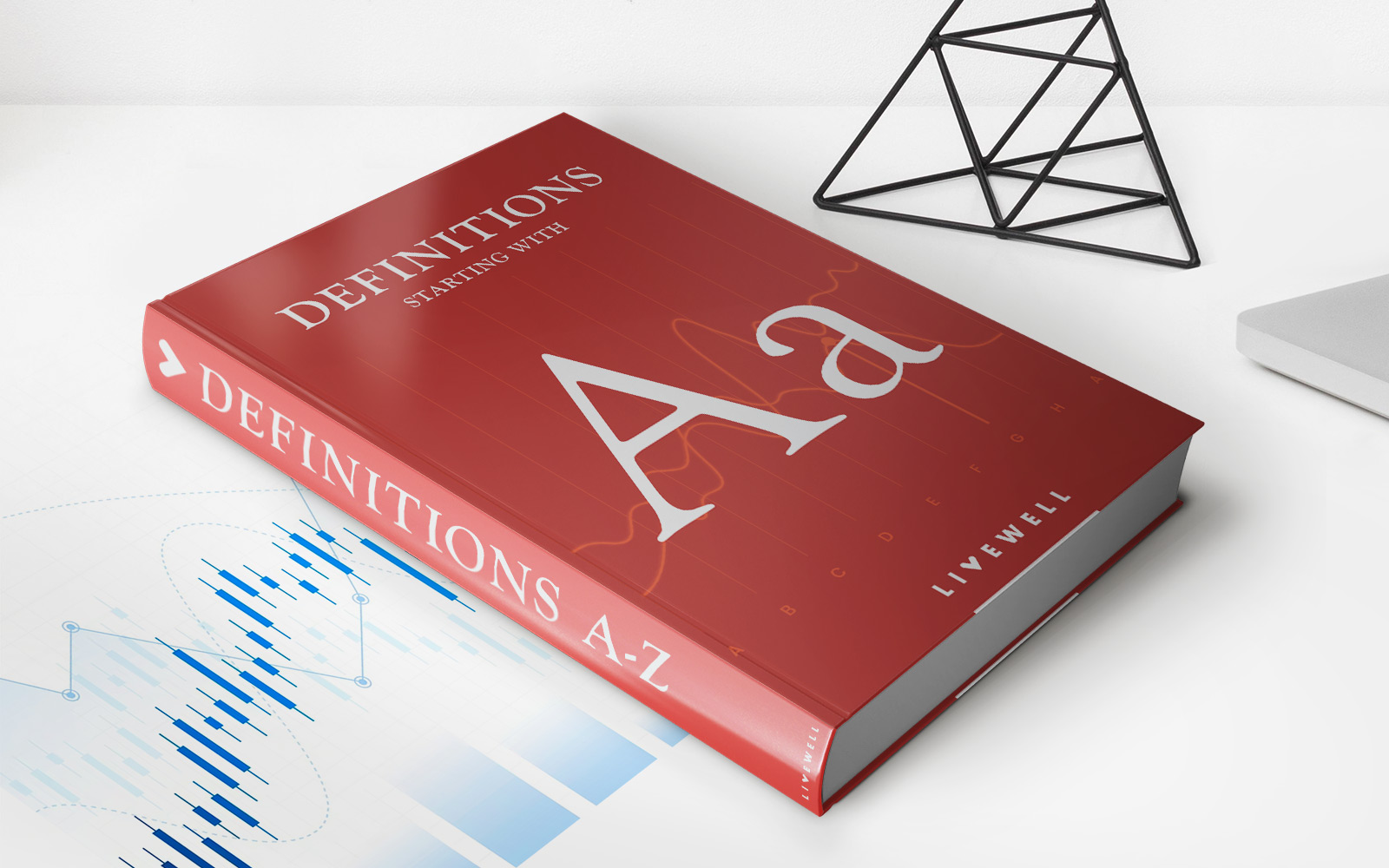

Finance
Why Do I Have A Statement Balance
Published: March 2, 2024
Learn why you have a statement balance and how to manage your finances effectively. Get expert tips and insights on personal finance.
(Many of the links in this article redirect to a specific reviewed product. Your purchase of these products through affiliate links helps to generate commission for LiveWell, at no extra cost. Learn more)
Table of Contents
Introduction
Understanding Statement Balance
The statement balance on a credit card is a critical aspect of personal finance that can significantly impact an individual's financial well-being. It represents the total amount owed to the credit card issuer at the end of a billing cycle. Understanding the statement balance is essential for effectively managing one's finances and making informed decisions regarding credit card usage.
The statement balance is the outstanding debt that must be repaid to the credit card company by the due date to avoid accruing interest charges. It reflects the cumulative total of all transactions, including purchases, cash advances, fees, and any interest charges incurred during the billing cycle. This balance is distinct from the current balance, which includes all transactions up to the present moment, including pending charges and payments.
Understanding the statement balance is crucial for maintaining financial stability and avoiding unnecessary debt. By comprehending the factors that influence the statement balance, individuals can take proactive steps to manage their credit card usage effectively. Moreover, having a clear grasp of the statement balance empowers individuals to make informed decisions about their spending, budgeting, and debt repayment strategies.
In the following sections, we will delve deeper into the intricacies of the statement balance, explore the factors that influence it, and highlight its significance in personal finance. Additionally, we will provide valuable tips for managing the statement balance effectively, enabling individuals to maintain financial discipline and make the most of their credit card usage. Understanding the statement balance is a fundamental aspect of financial literacy, and by gaining insights into this concept, individuals can take control of their financial future with confidence and prudence.
Understanding Statement Balance
When it comes to managing personal finances, understanding the statement balance on a credit card is crucial. The statement balance represents the total amount owed to the credit card issuer at the end of a billing cycle. It encompasses all transactions, including purchases, cash advances, fees, and any interest charges incurred during the billing period.
It’s important to note that the statement balance is not the same as the current balance. While the statement balance reflects the outstanding debt at the end of the billing cycle, the current balance includes all transactions up to the present moment, including pending charges and payments. This differentiation is essential for individuals to have a clear understanding of their financial obligations and to make informed decisions regarding their credit card usage.
When a credit card statement is generated, it outlines the statement balance, the minimum payment due, the due date, and the total amount owed. It’s imperative for cardholders to review their statements carefully to ensure accuracy and to understand the implications of the statement balance on their overall financial health.
Understanding the statement balance also involves comprehending the implications of carrying a balance from one billing cycle to the next. If the statement balance is not paid in full by the due date, interest charges will accrue on the remaining balance, potentially leading to increased debt over time. This underscores the importance of managing the statement balance effectively to avoid unnecessary interest expenses and to maintain financial stability.
Furthermore, the statement balance serves as a reflection of an individual’s financial discipline and spending habits. By monitoring and managing the statement balance responsibly, individuals can demonstrate prudent financial behavior and avoid falling into the trap of excessive debt. It also provides insights into one’s overall financial health and the need for potential adjustments in spending and budgeting.
In essence, understanding the statement balance is a fundamental aspect of financial literacy. It empowers individuals to make informed decisions about their credit card usage, budgeting, and debt repayment strategies. By gaining insights into the intricacies of the statement balance, individuals can take proactive steps to maintain financial discipline and make the most of their credit card usage.
Factors Affecting Statement Balance
Several key factors influence the statement balance on a credit card, impacting an individual’s overall financial obligations and debt management. Understanding these factors is essential for effectively managing the statement balance and making informed decisions regarding credit card usage. Below are the primary elements that can affect the statement balance:
- Purchases: The most straightforward factor affecting the statement balance is the total amount spent on purchases using the credit card during the billing cycle. This includes everyday expenses, such as groceries, gas, dining, and other discretionary spending. The higher the total purchases, the greater the statement balance will be at the end of the billing period.
- Cash Advances: Cash advances obtained through the credit card can significantly impact the statement balance. Cash advances often come with additional fees and higher interest rates, leading to an increase in the overall amount owed on the card.
- Interest Charges: Accrued interest on the outstanding balance from previous billing cycles contributes to the statement balance. If the previous month’s balance was not paid in full, interest charges will be added to the new statement balance, potentially increasing the overall amount owed.
- Fees: Various fees, such as annual fees, late payment fees, and balance transfer fees, can contribute to the statement balance. It’s essential for cardholders to be aware of these fees and their impact on the overall balance.
- Payments and Credits: Any payments made and credits received during the billing cycle will directly affect the statement balance. Payments reduce the outstanding balance, while credits, such as refunds or rewards, can offset a portion of the total amount owed.
- Grace Period: The presence or absence of a grace period can influence the statement balance. A grace period allows cardholders to pay their statement balance in full without incurring interest charges. Understanding the terms of the grace period is crucial for managing the statement balance effectively.
By considering these factors and their impact on the statement balance, individuals can gain a comprehensive understanding of their financial obligations and make informed decisions about their credit card usage. Moreover, being aware of these influences empowers individuals to take proactive steps in managing their finances, avoiding unnecessary debt, and maintaining financial stability.
Importance of Statement Balance
The statement balance on a credit card holds significant importance in an individual’s financial life, impacting their overall financial health and debt management. Understanding the importance of the statement balance is crucial for maintaining financial discipline and making informed decisions about credit card usage. Below are the key reasons highlighting the significance of the statement balance:
- Debt Management: The statement balance serves as a reflection of an individual’s outstanding debt to the credit card issuer. Effectively managing the statement balance is essential for controlling debt and avoiding unnecessary interest expenses. By paying the statement balance in full and on time, individuals can prevent the accumulation of debt and maintain a healthy financial position.
- Interest Charges: Failing to pay the statement balance in full by the due date can result in the accrual of interest charges on the remaining balance. Understanding the implications of interest charges underscores the importance of managing the statement balance to avoid unnecessary expenses and to preserve financial stability.
- Credit Score Impact: The statement balance can impact an individual’s credit score, which plays a crucial role in various financial transactions, including obtaining loans, mortgages, and favorable interest rates. By managing the statement balance responsibly, individuals can demonstrate prudent financial behavior, positively impacting their credit score and overall financial standing.
- Financial Discipline: Monitoring and managing the statement balance fosters financial discipline and responsible spending habits. It encourages individuals to budget effectively, make timely payments, and avoid excessive debt, contributing to long-term financial well-being and stability.
- Budgeting and Planning: The statement balance provides valuable insights into an individual’s spending patterns and financial commitments. By understanding the statement balance, individuals can make informed decisions about budgeting, planning for future expenses, and aligning their financial goals with their credit card usage.
Recognizing the importance of the statement balance empowers individuals to take proactive steps in managing their finances effectively. It encourages responsible financial behavior, informed decision-making, and a strategic approach to credit card usage. By prioritizing the management of the statement balance, individuals can safeguard their financial well-being and make the most of their credit card benefits while avoiding the pitfalls of excessive debt and unnecessary expenses.
Tips for Managing Statement Balance
Effectively managing the statement balance on a credit card is essential for maintaining financial stability and avoiding unnecessary debt. By implementing practical strategies and adopting responsible financial habits, individuals can take control of their statement balance and make the most of their credit card usage. Below are valuable tips for managing the statement balance effectively:
- Regularly Monitor Transactions: Stay informed about your credit card activity by regularly monitoring transactions online or through mobile apps. This helps in keeping track of your spending and identifying any unauthorized charges promptly.
- Set Spending Limits: Establish personal spending limits and adhere to a budget to ensure that your credit card expenses remain within manageable boundaries. This proactive approach can prevent excessive statement balances and promote responsible financial behavior.
- Pay On Time and In Full: Aim to pay the statement balance in full by the due date to avoid accruing interest charges. Timely payments not only prevent additional expenses but also contribute to a positive credit history and credit score improvement.
- Understand Grace Periods: Familiarize yourself with the grace period offered by your credit card issuer. Utilize this period to pay the statement balance in full without incurring interest charges, thereby optimizing your debt management strategy.
- Minimize Cash Advances: Limit cash advances as they often come with higher fees and interest rates, leading to an increase in the statement balance. Whenever possible, use alternative payment methods for cash transactions.
- Avoid Unnecessary Fees: Be mindful of potential fees, such as late payment fees and balance transfer fees, that can contribute to the statement balance. Adhering to payment deadlines and understanding the terms and conditions of your credit card can help in minimizing these additional expenses.
- Utilize Rewards Wisely: If your credit card offers rewards or cashback benefits, utilize them strategically. Apply rewards to offset a portion of the statement balance or redeem them for valuable benefits, contributing to overall debt reduction.
- Review and Understand Statements: Thoroughly review your credit card statements to ensure accuracy and to understand the implications of the statement balance. Identify any discrepancies and seek clarification from the card issuer if necessary.
By incorporating these tips into your financial management practices, you can effectively manage your statement balance, demonstrate responsible financial behavior, and optimize the benefits of your credit card usage. Taking proactive steps to monitor your spending, make timely payments, and minimize unnecessary expenses empowers you to maintain financial discipline and make informed decisions about your financial well-being.
Conclusion
Understanding and managing the statement balance on a credit card is a fundamental aspect of personal finance that directly impacts an individual’s financial well-being. The statement balance represents the total amount owed to the credit card issuer at the end of a billing cycle and serves as a crucial indicator of an individual’s financial obligations and debt management.
By comprehending the factors that influence the statement balance, individuals can take proactive steps to manage their credit card usage effectively, avoid unnecessary debt, and maintain financial stability. It is essential to monitor transactions, set spending limits, and make timely payments to ensure that the statement balance remains within manageable boundaries.
The importance of the statement balance cannot be overstated, as it directly influences an individual’s debt management, interest charges, credit score, financial discipline, and budgeting decisions. Recognizing the significance of the statement balance empowers individuals to make informed decisions about their credit card usage, prioritize responsible financial behavior, and safeguard their financial well-being.
By implementing practical tips for managing the statement balance, such as paying on time, minimizing fees, and utilizing rewards strategically, individuals can navigate their credit card usage with prudence and confidence. These proactive strategies enable individuals to maintain financial discipline, optimize the benefits of their credit cards, and avoid the pitfalls of excessive debt and unnecessary expenses.
In conclusion, mastering the art of understanding and managing the statement balance is a cornerstone of financial literacy. By gaining insights into this critical aspect of personal finance, individuals can take control of their financial future, make informed decisions, and pave the way for long-term financial well-being and stability.














